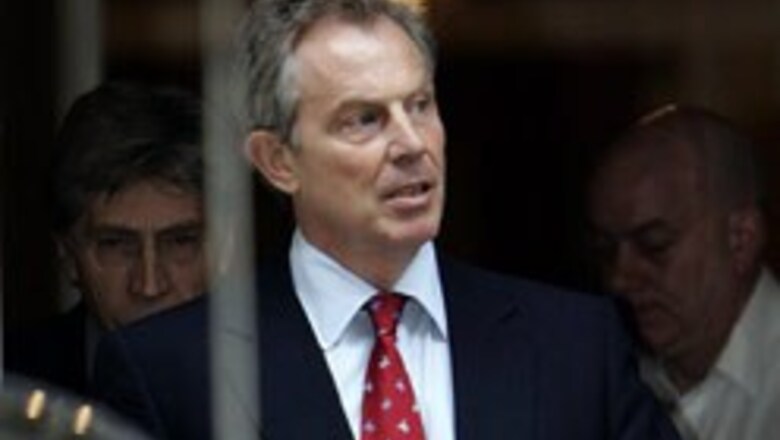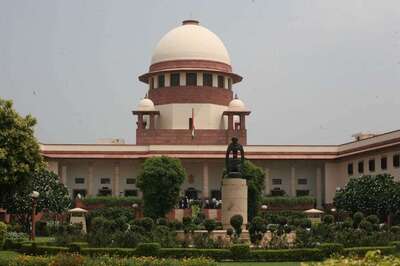
views
London, England: Prime Minister Tony Blair led his beleaguered Labour Party into electoral combat for the final time Thursday in local and regional elections that, amid his unpopularity, could put Scotland on the road toward independence from the rest of Britain.
Voters were going to the polls to pick members of the Scottish Parliament and the Welsh National Assembly, while more than 10,000 seats on 312 local government councils across England are also up for grabs.
Polls opened at 7 a.m. (0600 GMT) and were due to close at 10 p.m. (2100 GMT).
The balloting will be the political swan song for Blair, who is set to announce his departure as leader of the Labour Party next week, after 10 years in power. With his popularity battered by his support for the Iraq war, Labour is expected to suffer significant losses in Thursday's vote.
The elections will also be a key test for David Cameron, the leader of the Conservative Party, which has seen a reversal of fortune since he took the helm in 2005. The Conservatives have overtaken Labour in national polls and are looking to make strong gains, especially in England.
But the most far-reaching political earthquake could come in Scotland, where polls show the Scottish National Party -- which advocates independence from England and the rest of Britain -- could take the largest number of seats, denting Labour's longstanding domination of Scottish politics.
While the Edinburgh parliament only has limited powers over local affairs, the SNP -- whose most famous supporter is actor Sean Connery -- has pledged to stage a referendum in 2010 on creating an independent nation for 5 million Scots, ending 300 years of union with England. However, Queen Elizabeth II would remain sovereign.
PAGE_BREAK
Blair, who has made several visits to Scotland ahead of Thursday's vote, has downplayed the possibility of a break-up, saying "I don't think people in Scotland want independence." However, some analysts believe his own negative image may be driving nationalist support.
"The reason why the SNP are doing well is not because people have changed their attitude towards Scotland in the union," said John Curtice of Strathclyde University in Glasgow. "It's essentially, primarily, to do with the fact that the Labour Party is unpopular."
Ironically, one of Blair's first major acts after becoming prime minister in 1997 was to set up the Scottish Parliament and the Welsh National Assembly, which similarly governs local affairs in Wales, brushing aside suggestions that devolution of power from London might one day lead to a break-up of the British union.
Currently, Labour controls the Edinburgh parliament in a coalition with the Liberal Democrats; Labour also runs the Welsh assembly, although it doesn't have an outright majority.
Blair, who announced last September that he would step down as Labour Party leader and prime minister within a year, said Tuesday that he will announce his departure plans next week. The heavy favorite to succeed him in both those posts is Gordon Brown, Britain's treasury chief, who is from Scotland.
Brown can take over for Blair without triggering a parliamentary election, which does not have to be called until 2010. However, Cameron and other opposition leaders have been demanding that an election be held immediately to give the British people a direct say in who becomes their next prime minister.
With inputs from CNN.com




















Comments
0 comment